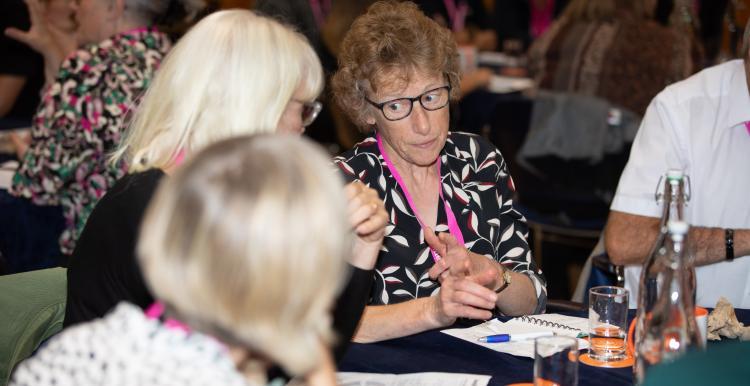Securing our future, strengthening our impact: Why change is needed

I joined the Healthwatch England Committee in September 2023 to bring the voice of local Healthwatch to committee discussions and decisions. At the time I was the Chief Executive Officer (CEO) of Healthwatch Nottingham and Nottinghamshire, a post I held for five years until I stepped down at the end of 2023.
I believe passionately in the value of local Healthwatch. We achieve some amazing things locally and nationally. But as a Healthwatch CEO I faced issues that many of you will have experienced:
- How to fulfil our huge remit across health and care with poor levels of funding (Healthwatch Nottingham and Nottinghamshire are some of the lowest-funded Healthwatch in the country based on pence per head of population). This was more difficult because of increasing multiple needs in our local communities, especially those with no voice and those experiencing health inequalities.
- Our contracts were for only three years, creating challenges with long-term planning for our strategy and impact.
- Increasing numbers of partners and groups to connect to, including four place-based partnerships and the integrated care board. These were important partnerships, but they generated yet more meetings to attend.
Like many Healthwatch, these issues limited our capacity to empower local people to have a voice and hold local NHS and care organisations to account. They limited the number of communities and providers where we could make a difference with in-depth investigation, so we could not always achieve as much impact as would have liked.
Why we need to change
Local Healthwatch are crucial. We are the only organisations with the independence and statutory power to hold health and care services to account for listening to their communities. If their voices are not heard, services will be commissioned in a way that does not work for them or excludes them altogether.
Individual local Healthwatch make their own decisions about how to prioritise, which leads to an inconsistent approach across the local Healthwatch network. As King’s College London said in its report on Healthwatch: “The diversity of the Healthwatch network … has considerable implications for equity of access to influencing health and care planning and provision for residents across England”. This affects our brand and profile.
Despite consistently raising this issue with the previous administration, Healthwatch funding has continued to decrease. Under the current economic climate this is unlikely to change. The risk is that we reach a point where delivering Healthwatch England and Healthwatch becomes financially unviable.
The total resource for Healthwatch England and the local Healthwatch network is £28m, £25m of which funds local Healthwatch. How can we work differently to achieve more and deliver a more consistent local Healthwatch offer across England, without additional funding?
What needs to happen now
Healthwatch England has led a 12-month engagement process during which chairs, lead officers and staff representing 101 local Healthwatch have contributed their views and debated the issues. A working group of representatives from ten local Healthwatch representatives has had further detailed discussions. With 153 Healthwatch it is no surprise that differing views exist. However, the need for change is something we all recognise. We now need to decide how we are going to change.
There are some things that must not change, such as our independence, and our statutory power to hold commissioners and providers to account. We have also agreed that we must not lose the localism of local Healthwatch.
Any decisions about a future Healthwatch model will be made by the Department of Health and Social Care. Healthwatch England will present the range of views to them, acknowledging the range of views within our network.
However, after carefully reviewing the options, the Healthwatch England Committee supports the model where Healthwatch England assumes the role of commissioner – a solution we heard loudly during our conversations with the Healthwatch network.
We believe that this approach offers the best solution for delivering fairer funding, a network that genuinely works as one, economies of scale for back office and governance functions, consistent terms and conditions, and uniform representation on integrated care boards.
We cannot let poor health and care become normalised.
Let's use the opportunity presented by a new government to strengthen our role in promoting the voice of patients, working together to make the biggest difference to the communities we serve.
Jane Laughton
HWE Committee Member
September 2024
